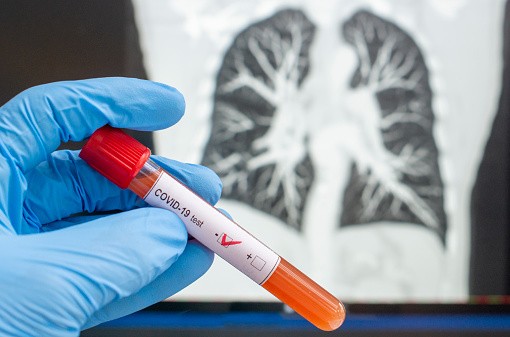In June, epidemiologists discovered that the coronavirus strain in the U.S. and Europe mutated into being ten times stronger than the original strain in China. Now they are saying that the mutation D614G (variant G614) is six times more infectious than it once was.

The D614G has become the dominant strain around the globe as the U.S. daily count range from hundreds to over a thousand cases and countries face the second wave of the pandemic. Experts have observed that D614G spike proteins have evolved bind to ACE-2 receptor proteins more aggressively.
People have been getting infected by coronavirus either by coming into contact with someone showing symptoms, someone asymptomatic, or picking up virus droplets from fomites, or surfaces with clusters of pathogens. The slight genetic changes of the new strain allow the virus to enhance its ability to 'jump' and infect others while symptoms that occur are not increased.
Americans have turned to Dr. Anthony Fauci for advice regarding the new findings which are yet to be confirmed. He shared to the American Medical Association, 'I think the data is showing that there is a single mutation that actually makes the virus be able to replicate better, and maybe have high viral loads.'
Viral load pertains to the concentration of the virus within the body. Medical experts have analyzed that the new mutation of coronavirus has increased the viral load in infected individuals.
Six Times More Infectious
A collaboration by the Los Alamos National Laboratory in New Mexico, the Duke University in North Carolina, and the University of Sheffield's Covid-19 Genomics UK research group studied 999 patients in the UK who had severe infections. They also looked at how effective the virus is at penetrating the immune system in several laboratory experiments.
Their results confirmed that the D614G is three to six times more infectious than the original strain from Wuhan, China. Scientists have not yet discovered exactly how protein mutation happens outside of a controlled laboratory environment.
'We don't have a connection to whether an individual does worse with this [strain] or not,' Fauci explained. 'It just seems that the virus replicates better and may be more transmissible.'Several emerging studies are focusing on the immune system's ability to fight coronavirus.
Read Also: Asymptomatic and Presymptomatic People Cause the Most Coronavirus Infections
Failing Immune System
Most research has concluded that the body is unable to produce sufficient antibodies to fight off recurring infections for more than a couple of weeks or months. As a result, it points back to the ACE-2 receptor cell, the key protein that coronavirus replicates to penetrate healthy cells and spread infection.
These receptors are found in the nasal passage, blood vessels, and internal organs - which may also explain why the respiratory virus affects more than just the lungs. It also remains unknown why some patients only have respiratory symptoms while others have their internal organs damaged. Multiple studies have ruled out the immune system fails to cope with such severe infection and ends up fighting in a way that causes inflammation.
Currently, people are still looking to the World Health Organization for an update in coronavirus guidelines. The spread of infection is still being determined not only by people who show symptoms, but more importantly the people who are asymptomatic and do not know that they carry coronavirus.
Read Also: [COVID-19 Update] WHO Counters Initial Claim: Coronavirus Can Be Spread Airborne Indoors
© 2026 ScienceTimes.com All rights reserved. Do not reproduce without permission. The window to the world of Science Times.









